
Rosyfaced Lovebird Photograph by Bruce J Robinson Fine Art America
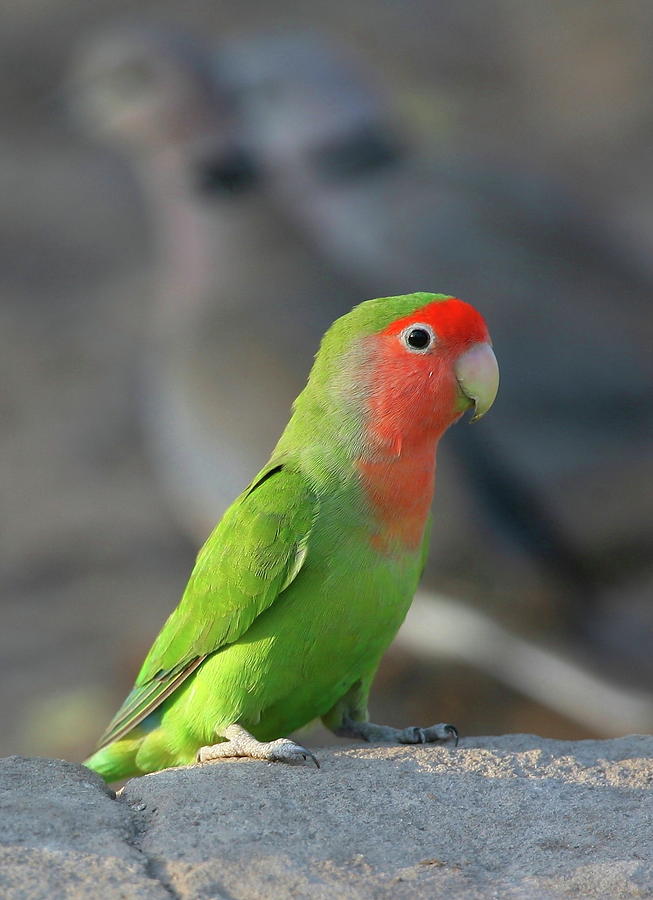
The rosy-faced lovebird is a fairly small bird, 17-18 cm (6.7-7.1 in) long, with an average wing length of 106 mm (4.2 in) and tail length of 44-52 mm (1.7-2.0 in). [4] Wild birds are mostly green with a blue rump. The face and throat are pink, darkest on the forehead and above the eye.
Rosyfaced Lovebird Photograph by Erynn Leigh Fine Art America
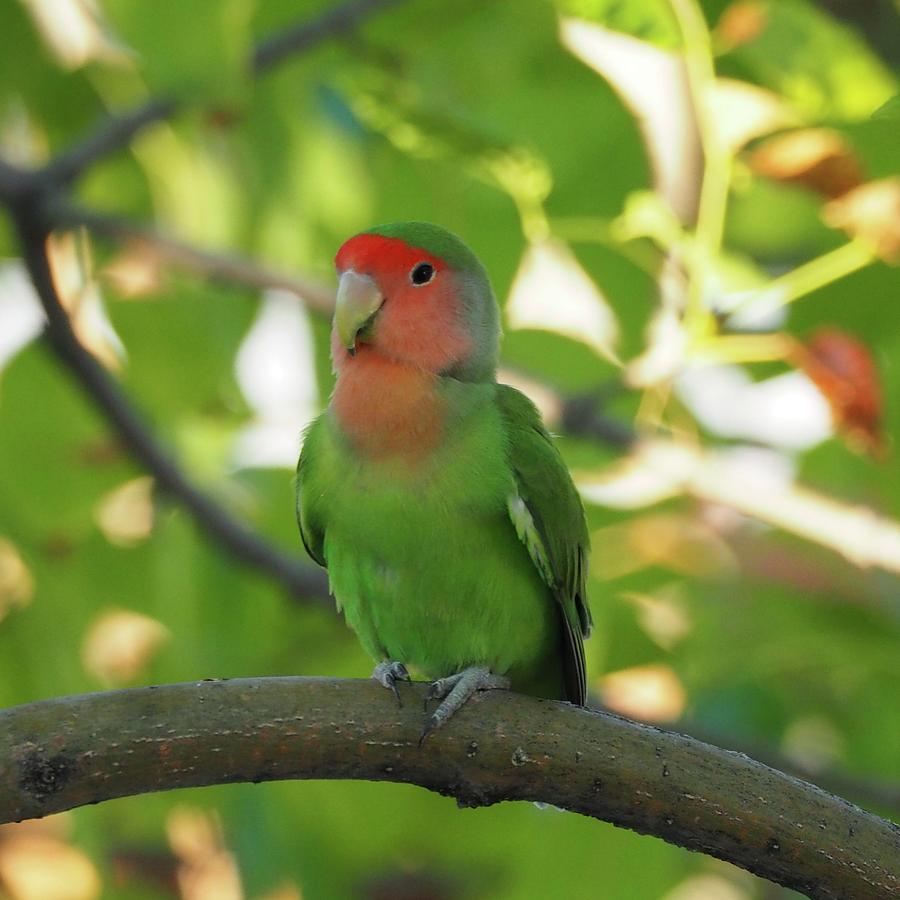
Click here for more information about the Red List categories and criteria Justification of Red List category This species has a very large range, and hence does not approach the thresholds for Vulnerable under the range size criterion (Extent of Occurrence <20,000 km2 combined with a declining or fluctuating range size, habitat extent/quality, or population size and a small number of.
Pictures and information on Rosyfaced Lovebird
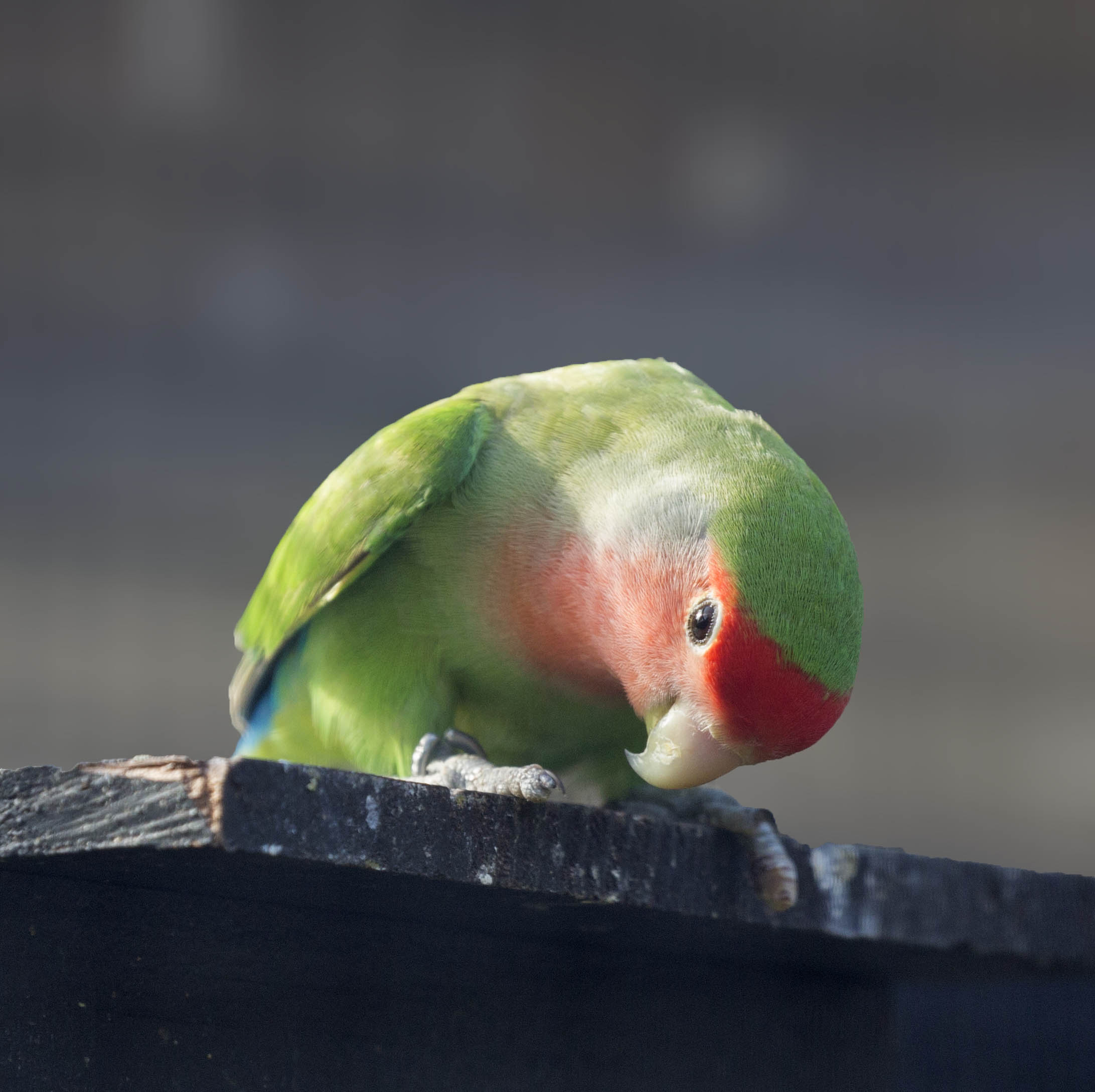
The rosy-faced lovebirds are easily found in places like the United States and Japan as pets. However, it's unfortunate that many lovebirds across the world are cage birds - far from the likes of their natural habitats in Africa. These natural beauties thrive in the wild and nothing beats seeing birds on a safari.
Rosyfaced lovebird Wikipedia
.jpg/1200px-Rosy-faced_lovebird_(Agapornis_roseicollis_roseicollis).jpg)
The Rosy-faced Lovebird ( Agapornis roseicollis) is a small, colorful parrot which is a popular cage bird in the U.S. and elsewhere. Since at least the mid-1980s, feral flocks of this species have been reported breeding in residential neighborhoods of the greater Phoenix area.
BirdsEye Photography Review Photos
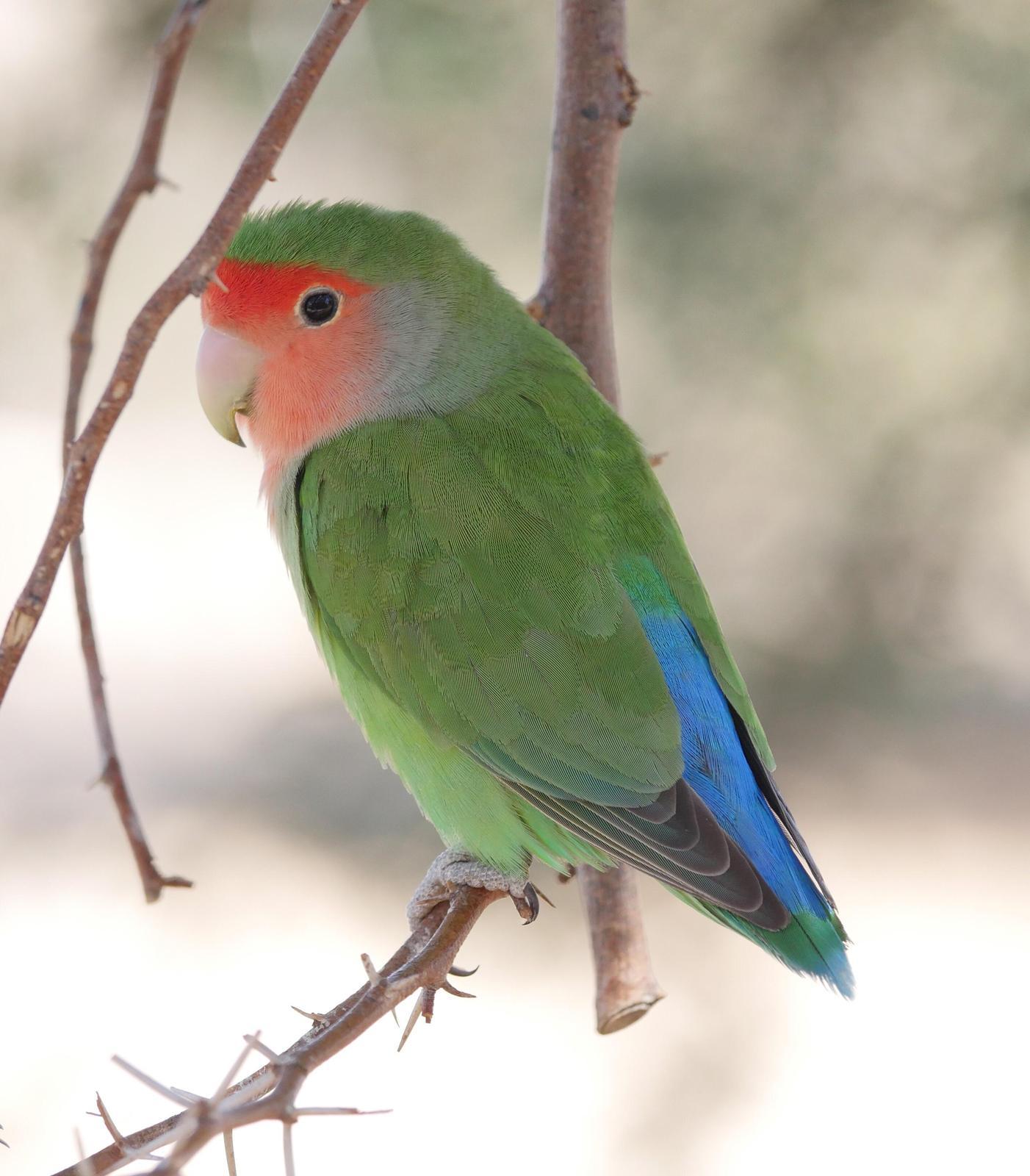
Rosy-faced Lovebird Agapornis roseicollis Family Lovebirds and Australasian Parrots Native to dry woodlands of southwestern Africa, this small parrot has established a thriving population around Phoenix, Arizona, with numbers estimated at over 2,000. Escapees from captivity are sometimes seen elsewhere.
Details Rosyfaced Lovebird BirdGuides
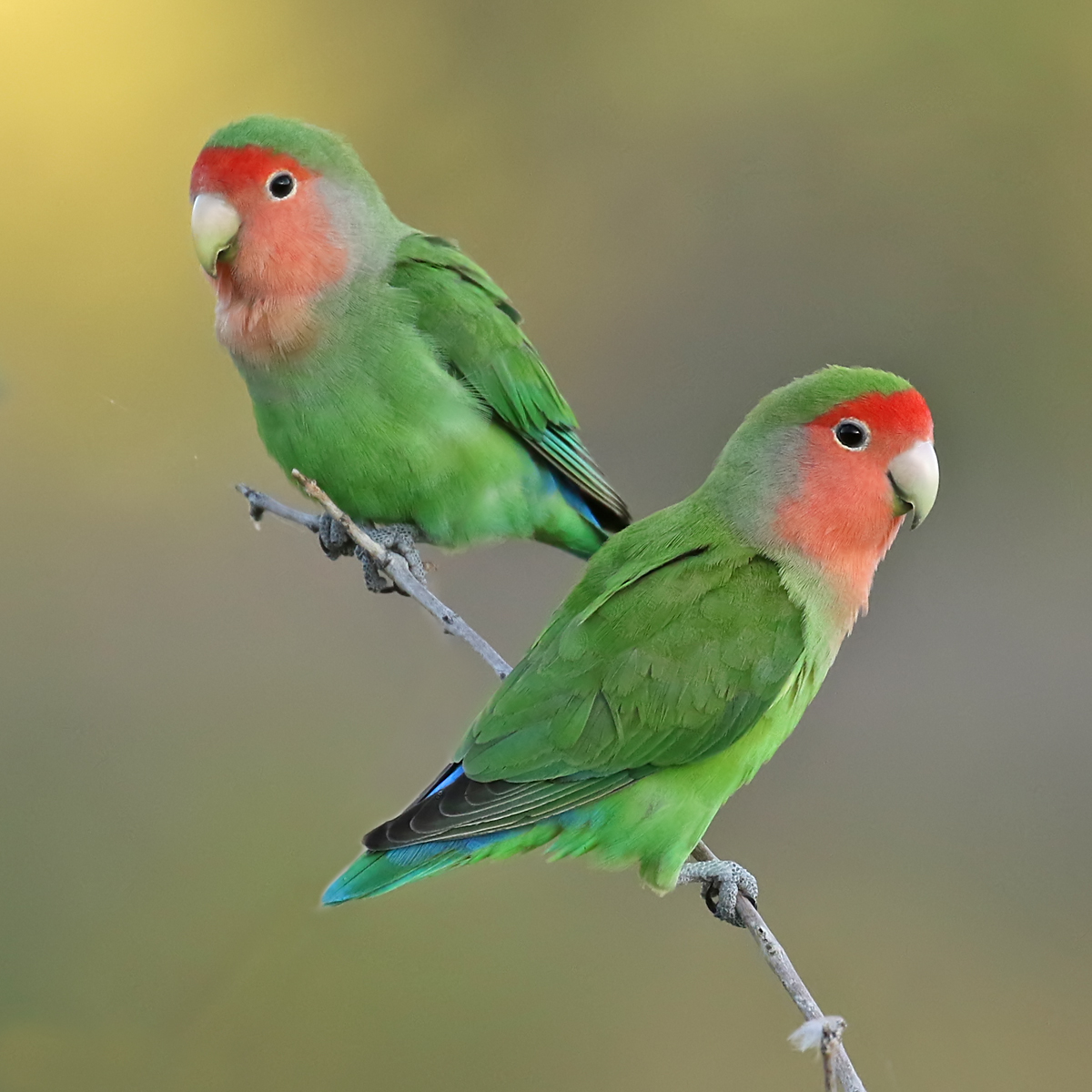
The rosy-faced lovebird (Agapornis roseicollis) is an exotic species of parrot that has captured the hearts of bird enthusiasts worldwide.Also known as the peach-faced lovebird, rosy-collared lovebird, these small, colorful birds are native to arid regions of southwest Africa but have established populations in parts of the United States, particularly in Phoenix, Arizona.
Rosyfaced Lovebirds in Phoenix
Rosy Faced Lovebird Agapornis roseicollis (Vieillot 1818) collect. overview; data; media; articles; maps; names; 2001 California Academy of Sciences cc-by-nc-sa-3. Agapornis roseicollis (Rosy Faced Lovebird) is a species of birds in the family Psittaculidae. They are native to Ethiopia.
PeachFaced Lovebirds Facts, Pet Care, Temperament, Price, Pictures

The Rosy-faced Lovebird is listed as Least Concern on the IUCN Red List and was last assessed in 2012 by BirdLife International. This species has a very large range, and hence does not approach the thresholds for Vulnerable under the range size criterion (Extent of Occurrence <20,000 km2 combined with a declining or fluctuating range size, habitat extent/quality, or population size and a small.
Rosyfaced Lovebird Owen Deutsch Photography
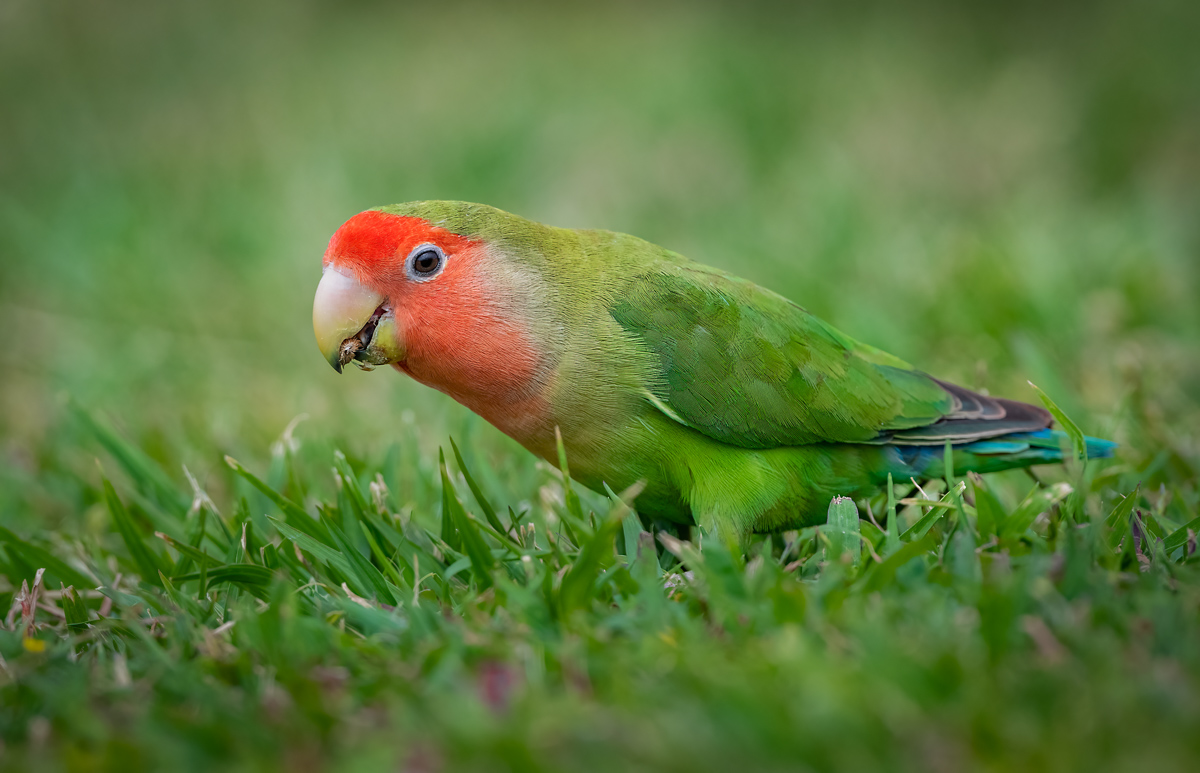
Rosy-faced Lovebird Agapornis roseicollis Length: 6 in. (16 cm ) This tiny parrot is native to the deserts of south-western Africa where it frequents dry woodlands, riparian areas, cultivated fields and vegetation along standing water. It has adaptations for enduring cold winters and hot summers.
Rosyfaced Lovebird Profile Photograph by Erynn Leigh Fine Art America
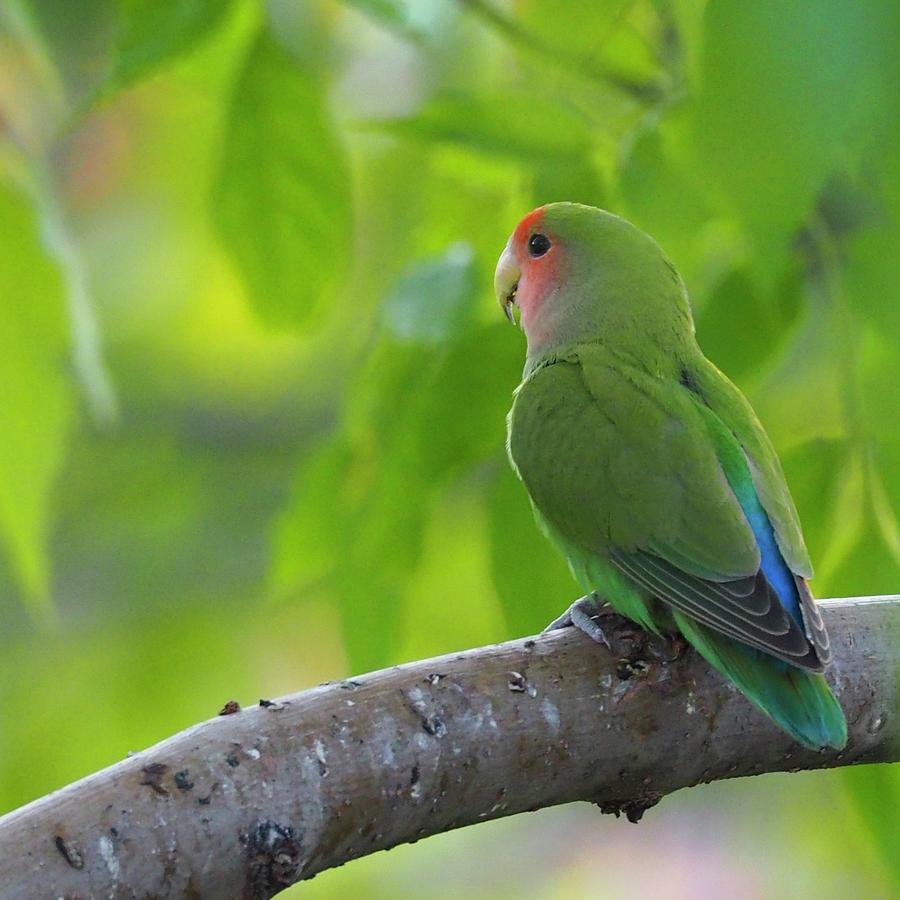
The Rosy-faced lovebird ( Agapornis roseicollis ) is a species of lovebird native to arid regions in southwestern Africa. A loud and constant chirper, these birds are very social animals and often congregate in small groups in the wild.
BirdsEye Photography Review Photos
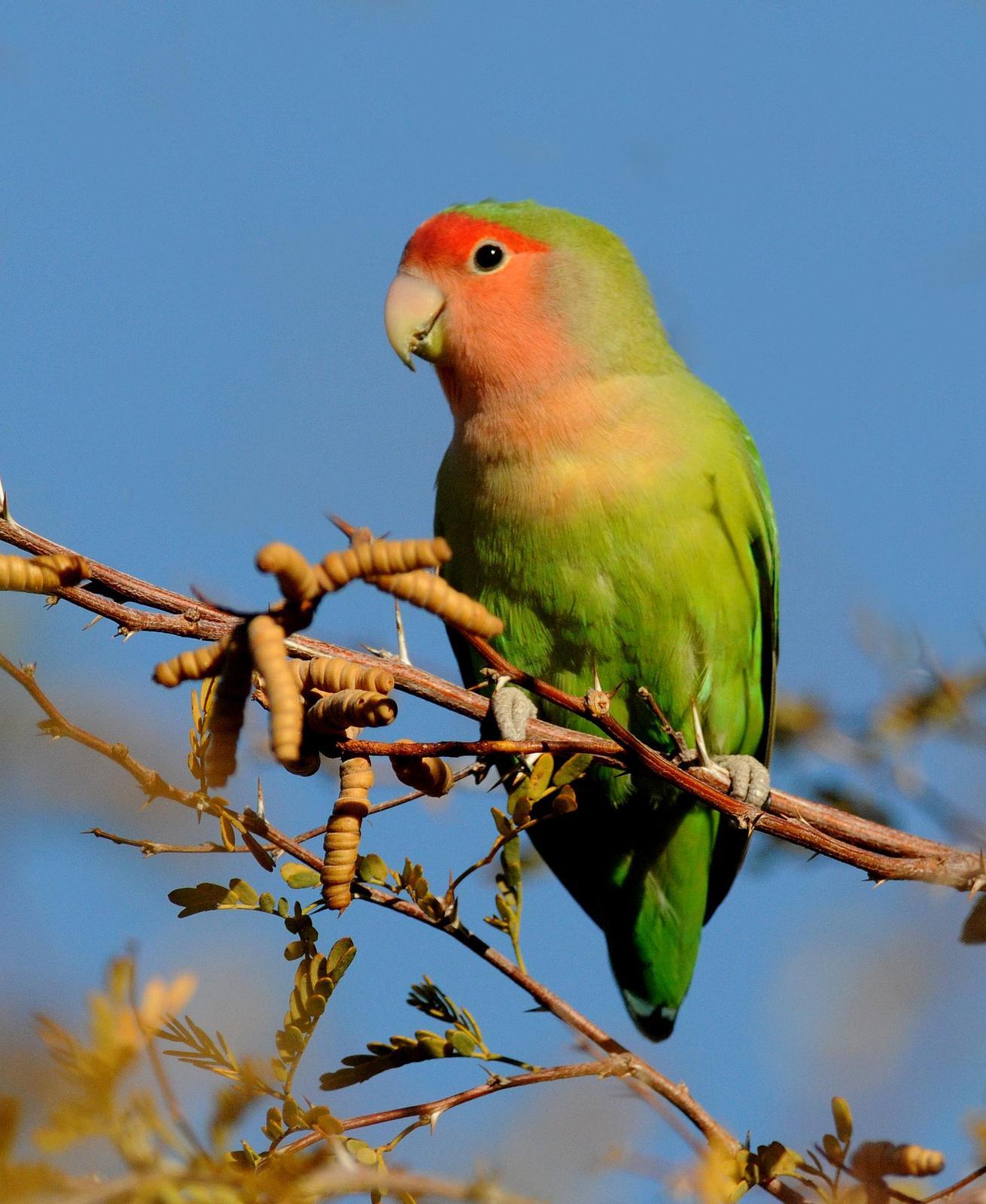
The rosy-faced lovebird (Agapornis roseicollis), also known as the rosy-collared or peach-faced lovebird, is a species of lovebird native to arid regions in southwestern Africa such as the Namib Desert. Loud and constant chirpers, these birds are very social animals and often congregate in small groups in the wild. They eat throughout the day.
Rosyfaced Lovebird eBird Burung beo, Kakaktua, Burung

Rosy-faced Lovebirds are pet trade escapees native to southwestern Africa that were first documented in Phoenix in the 1980s. They've flourished in the city, where they nest in cavities in ornamental palm trees and native cacti, and their population is now estimated at more than 2,000 individuals.
BirdsEye Photography Review Photos
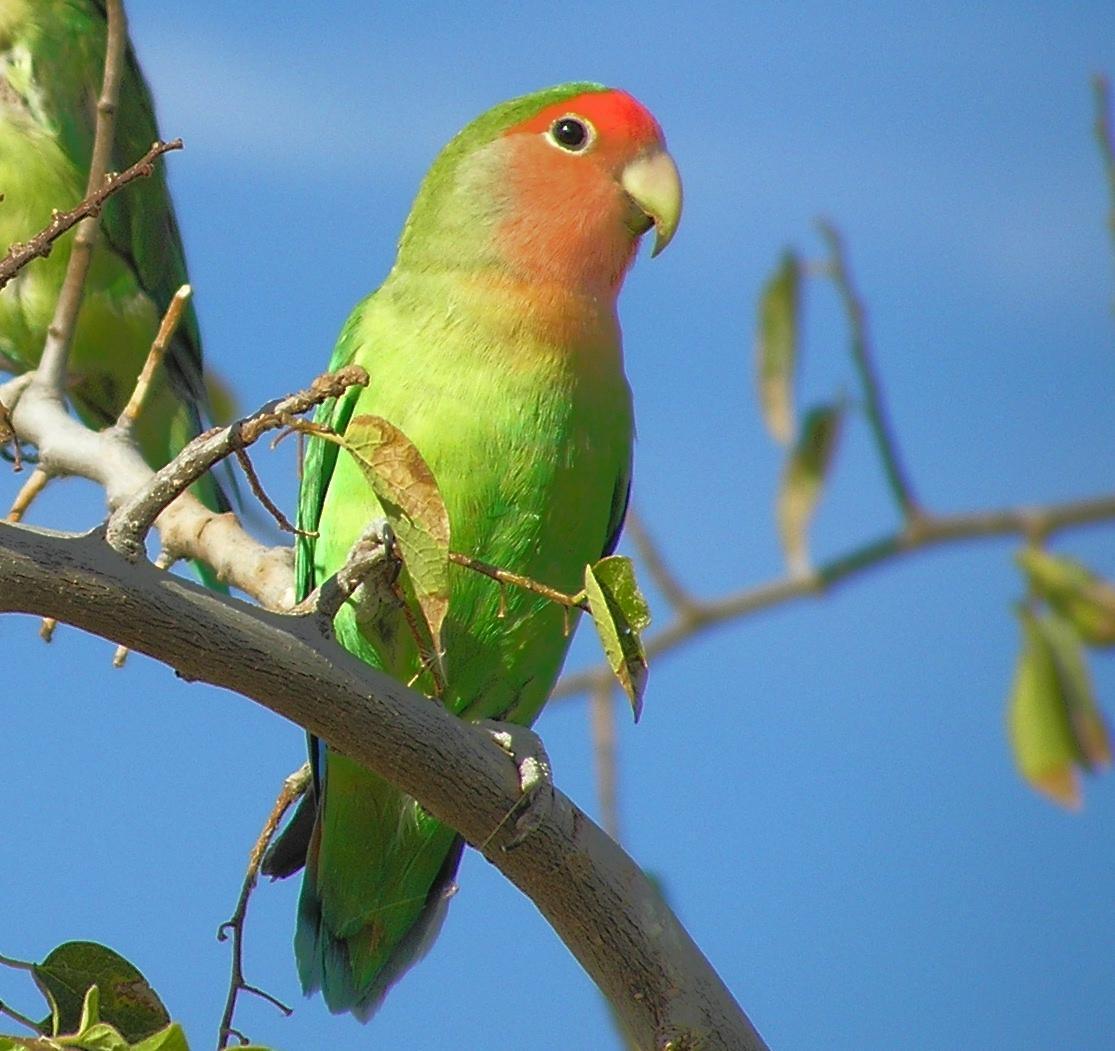
Peach-faced or rosy-cheeked lovebirds ( Agapornis roseicollis) have a range centered on the south-western portion of Africa. They inhabit the north-west corner of South Africa, through the western half of Namibia, and into the southwest corner of Angola.
RosyFaced Lovebird 11 Facts About the Peachy Lovers
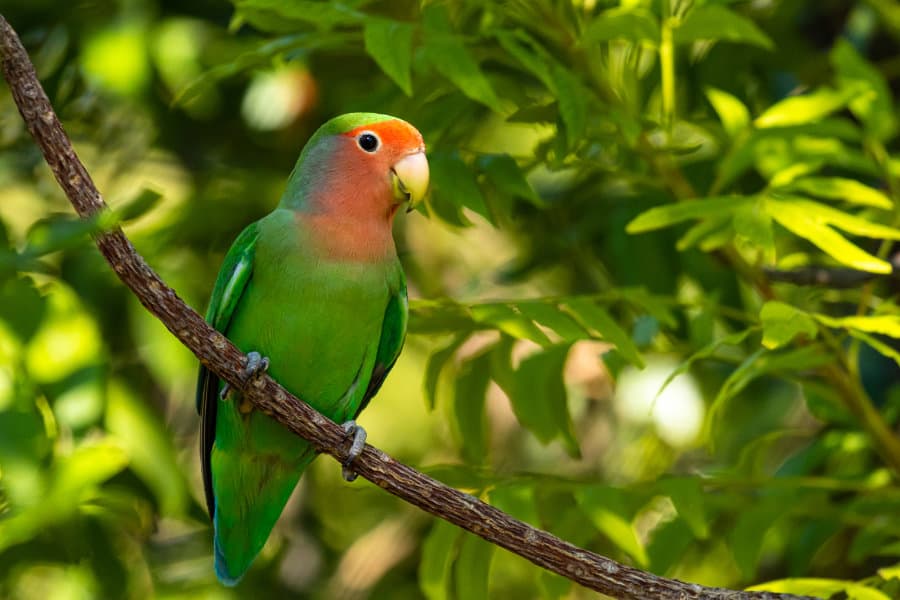
Rosy-faced lovebirds are widely considered to be one of the most beautiful species of lovebirds. The birds weigh approximately 55 grams and measure 6 inches long. The average weight of a female is slightly higher than that of a male. A male's average wing span is 99.6 mm, while a female's average wing span is 102.6 mm.
Rosyfaced Lovebird eBird Love birds, Birds, Wild birds

A small, short-tailed parrot with a soft pink face and dark eyes. Native to southwestern Africa, but feral populations occur in Arizona and in Hawaii; a common pet species, and escapees may occur anywhere. Wild birds are leaf green with brilliant blue rumps, but escaped domestic types may be mostly blue or yellow. Inhabits dry forests and river valleys; present in cities in both natural and.
Rosyfaced Lovebirds Our resident lovebirds are often seen on the

The rosy-faced lovebird ( Agapornis roseicollis) is a genus of parrot. It is native to dry parts of Africa. It is often found in Angola and the Namib Desert. [2] It is also known as the rosy-collared or peach-faced lovebird. The birds are very social animals. They are often found in small groups. They are often kept as pets.